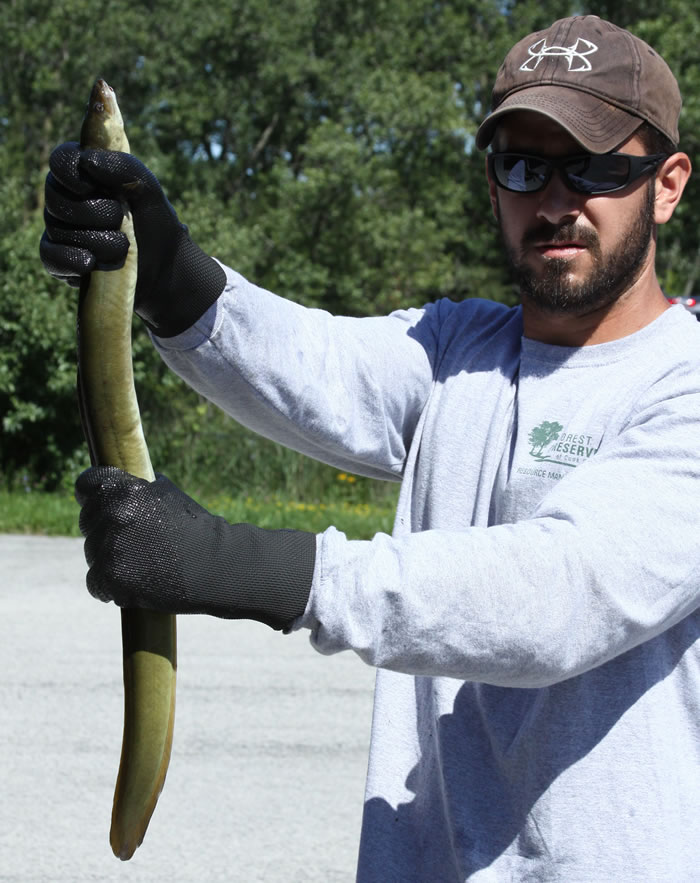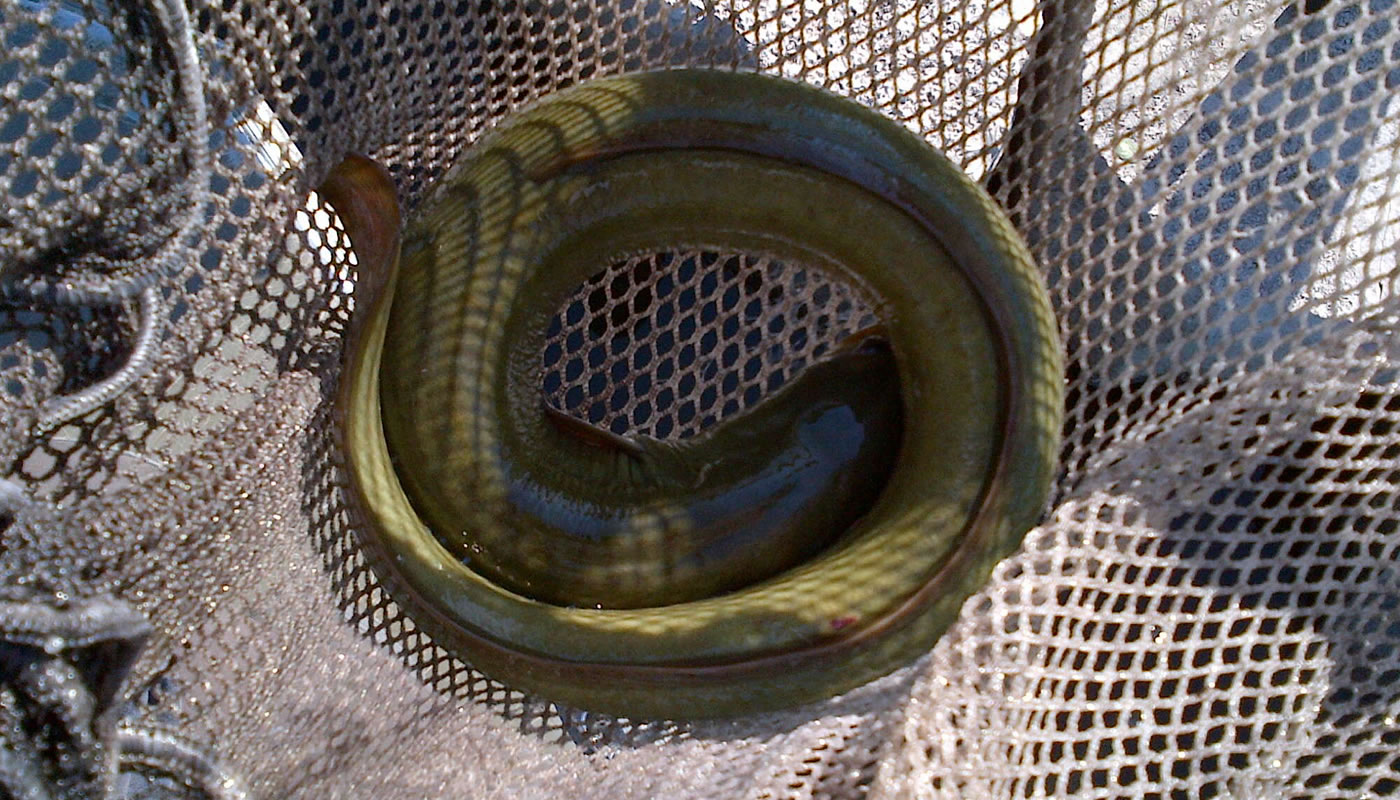On an ordinary morning, an ordinary fisherman (with an ordinary hook and line) caught an extraordinary fish. This approximately 30 inch, four to five pound American eel found in Orland Park’s Tampier Lake is only the third eel discovered in Forest Preserves waters in the last 30 years.
A rare find, but the truly amazing part of this story is how it may have traveled here.
The Tampier Lake American eel with a Forest Preserves staff member

American eels are born in the salt water of the Sargasso Sea in the North Atlantic Ocean. Eel larvae immediately begin their journey to fresh water, where they spend the majority of their 25 to 30 years of life. They typically settle near the Chesapeake Bay and Hudson River to the north, or in the river systems that feed into the Gulf of Mexico to the south. It is uncommon for them to travel much farther inland.
This adventurous eel likely made its way here from the north through Hudson Bay, or from the south via the Mississippi River. It then navigated through the Midwest’s larger waterways, finally finding Tampier Lake along an elaborate creek system—a potential journey of over 3,700 miles!
Once in the creek system, the eel likely encountered some dry spots that could have thwarted other fish. But with their muscular, snake-like bodies and well developed ventral fins, eels can actually travel over land for short distances.
So was the long, hard journey worth it? As it turns out, Tampier Lake is a pretty good spot for our slimy friend to thrive. Its mucky, deep bottom (over nine feet at its deepest) and quiet surroundings form a rich, bio-diverse habitat that provides a varied menu and peaceful home.
After the surprise catch, the eel was carefully transported to the McGinnis Field Station in Orland Park where amazed Forest Preserves staff examined and observed the eel before releasing it back into the lake. Fisheries biologist Steve Silic estimated the eel to be in the fourth stage of its six-stage life cycle (the only way to definitively age and sex an eel is through internal examination), which means it may have been our fellow resident for the last 25 years!

